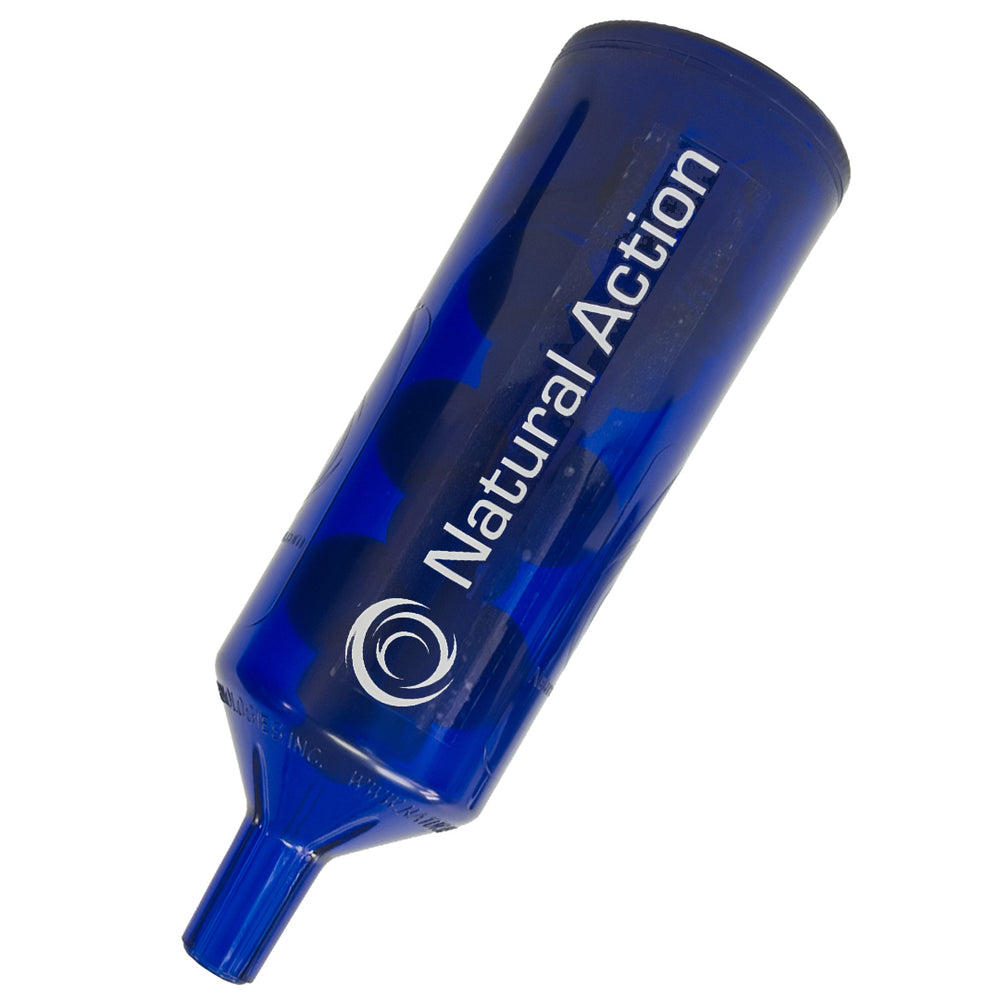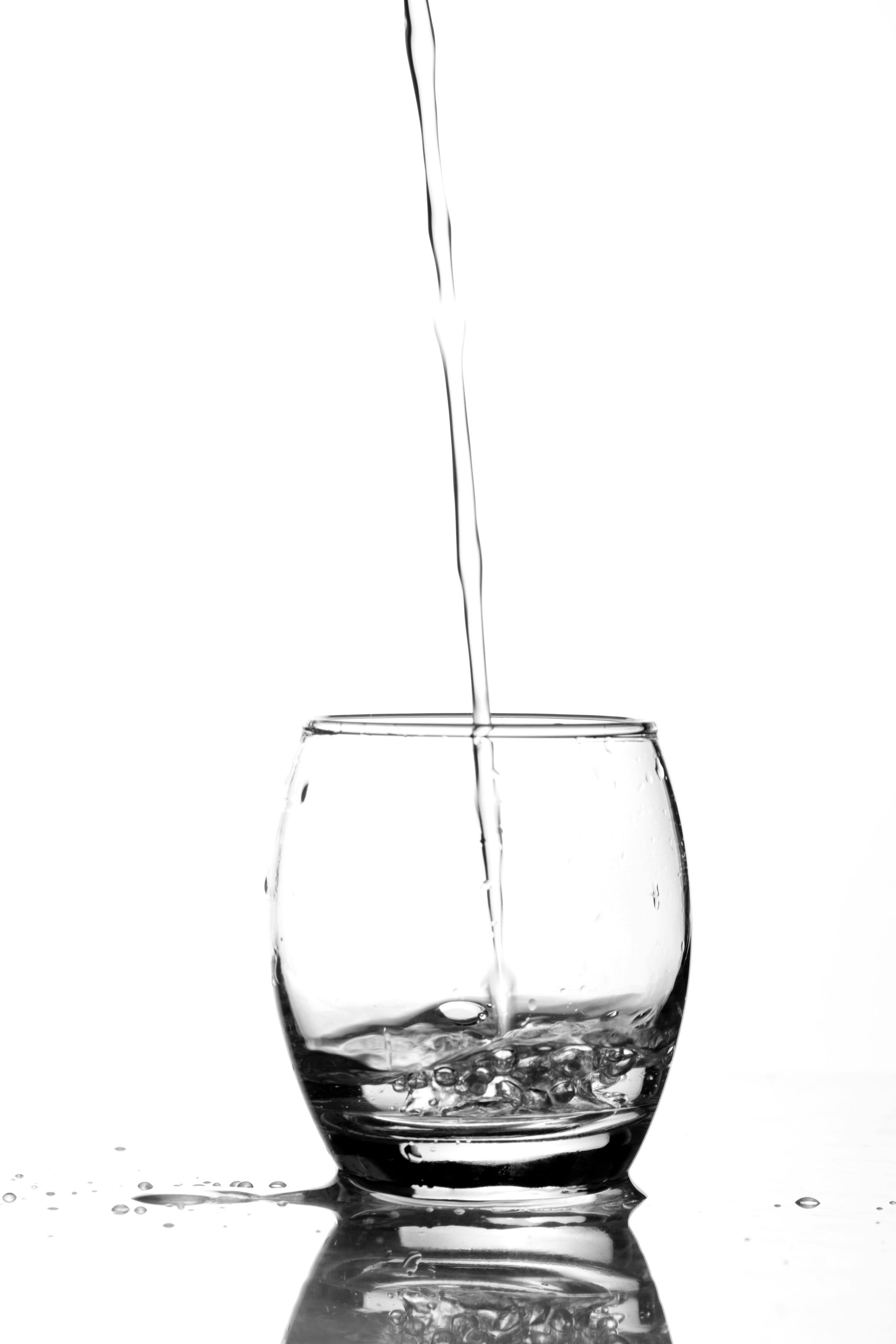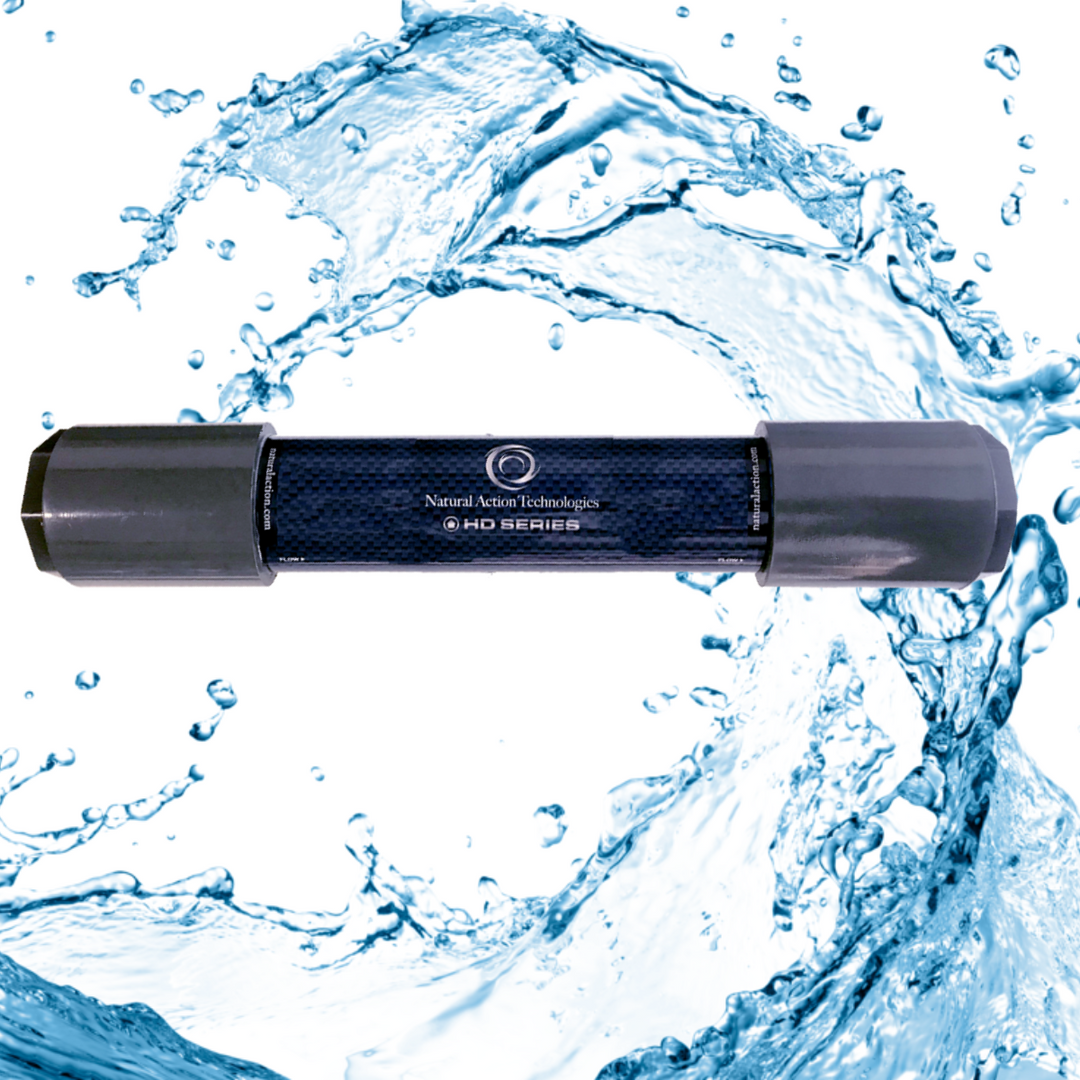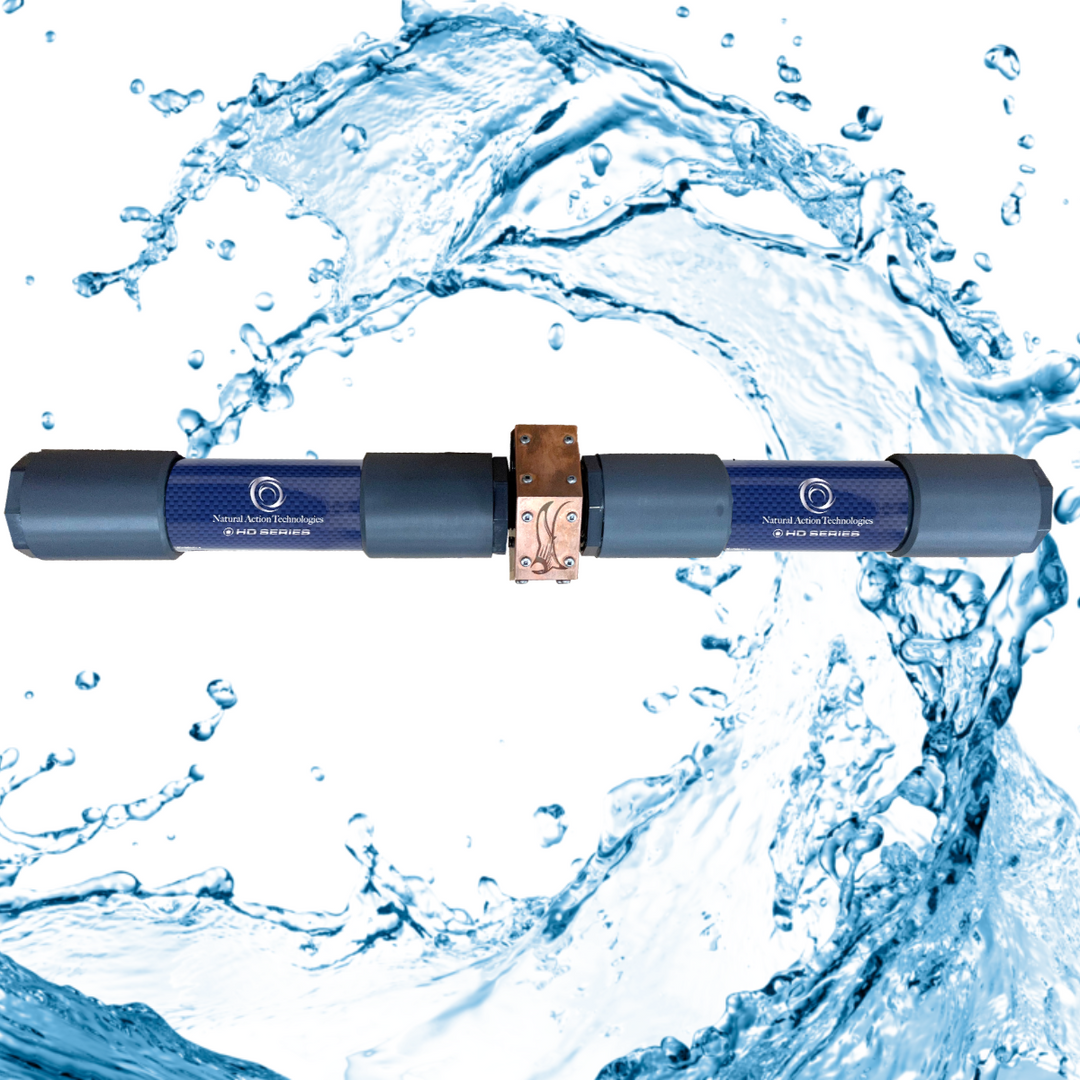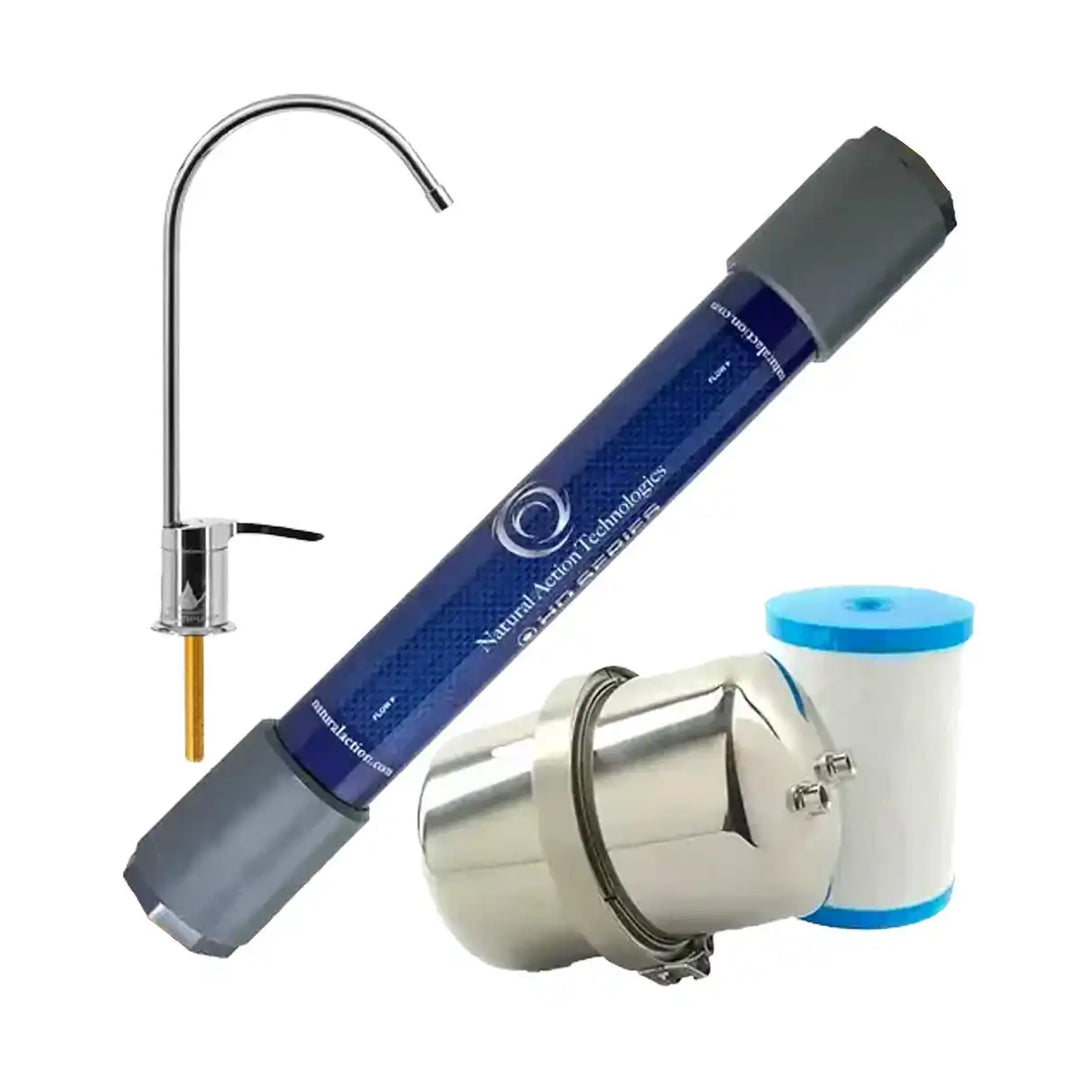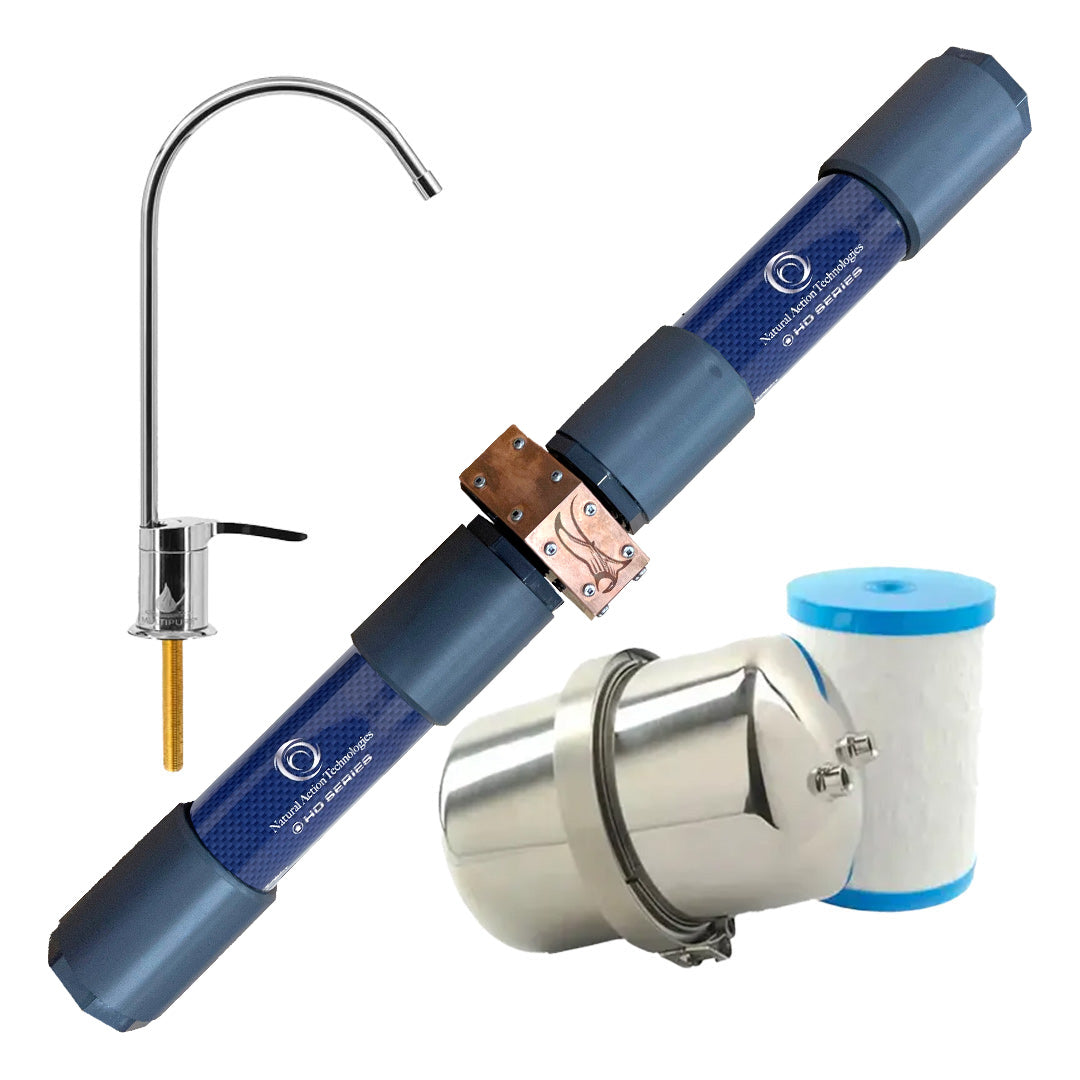Now we move on to the next most common type of water that folks drink, which is reverse osmosis and distilled water. And often people get these in the form of purified bottled water, or they may bring jugs to the local grocery store and fill up big five-gallon carboys or have filters at home. So how does this water affect us? Well, first let's back up a bit and talk about water itself in nature.
Water in nature is never just H2O. It has tons of minerals and ions dissolved into it, potassium ions, magnesium ions, sodium ions, plus different microorganisms. And these all make water a complete and well-rounded being. This is known as the TDS of the water, total dissolved solids. If you have a really low TDS reading, a lot of you who might have wells might be familiar with this terminology.
That's a really soft water. And that's a pretty good daily drinking water. On the other hand, if you have a really high TDS reading, that's kind of a hard water. Maybe more like a mineral water or hot springs water. And that's more of a medicinal water, probably not your everyday hydration. But if you're sick, it can be good to drink. So back to distillation and reverse osmosis. Distillation is a process where water is heated to the point where it vaporizes and becomes steam. And at that point, all of the minerals are left behind. It's an extremely purified, extremely refined, highly processed kind of water that's just pure H2O. Now, what's good about this is it scrambles the molecules and clears the water of whatever toxic memory it might have.
And it definitely purifies it of any heavy metals or particulate toxins that might have been in there. In some cases where the source water is super contaminated, it can be good, but it's not generally healthy for human beings to drink in the long term. Reverse osmosis, or RO water, is basically the exact same as distilled water, the same benefits and drawbacks. The difference is just that RO water is processed through mechanical means instead of thermal means like distillation. The water is pressed through a really, really fine submicron filter where all of the molecules are spread apart and any heavy particulates are left behind. But just like we don't want to consume heavily processed food, we don't want to consume heavily processed water either.
You can think of it like wheat. When wheat is processed down and everything is stripped of it, all the molasses and the B vitamins and the proteins and the soluble and insoluble fibers, what you're left with is just a pure carbohydrate, the pure white flour. And at one point, it was thought that that must be good for us, right? Because we've taken out all the impurities and we just have pure flour. It was believed that that must be the healthiest for people. A lot of people still think the same thing about distilled water, that because it's so pure, it must be good for us. But water doesn't exist like that in nature at all. Just like wheat doesn't exist like that in nature, just like refined sugar, refined white table salt, or refined cocaine from the coca plant, when something's highly processed, a nutrient can turn into a poison.
For the past 200,000 years that we've been the genus Homo, we've been consuming whole, complete, well-rounded water, even longer than that, since the dawn of life, with all of its minerals, electrolytes, microflora, microbiota, nano colloids, etc. And when this water is stripped of everything that's just the pure H2O molecules, it becomes what hydrologists call an aggressive solvent. In other words, it's hungry. It's had everything robbed from it, so who can blame it? It then tends to leach stuff from its environment. It wants to fill itself back up again. What ends up happening when you drink this kind of water over the long term is that it leaches minerals from your body, which is not only not hydrating, it's actively dehydrating, and it can be particularly detrimental for women who, as we age, have more of a tendency towards mineral deficiencies anyways, especially after pregnancy.
You want to be really careful about water like this. Because it's just pure H2O, distilled and RO water is not a conductor. It's an insulator. If it doesn't have electrolytes, in there, it's an insulator. If anyone's like, oh, I don't believe in this hocus pocus water magic, reverse osmosis water, it's just as good as any other kind of water. Well, no, it's not even electrically conductive. If it's triggering to think of water as being alive and having a life force vitality to it, just think of it in terms of having an electrical ionic charge and having living microorganisms in there. Different language, but basically the same thing. We need our water to be electrically charged and have this ionic function, like water in nature.
Because within our bodies, we need to maintain an excess of electrons at all times. When we have an excess of protons, we call those free radicals, and they cause inflammation and oxidative stress and damage in the body. We want to make sure that the water we drink has an antioxidant potential by having a negative ionic charge. And this comes largely from electrolytes or dissolved minerals that are no longer present after distillation or reverse oscillation. And because it's an aggressive solvent, be especially mindful in terms of the container that you keep it in.
If you keep it in plastic, for example, it's going to leach all of the xeno estrogenic compounds from the plastic into the water. And recently the WHO actually warned against drinking distilled or reverse osmosis water over the long term.
They expressed concerns over things like diuresis and heart disease. It's really not meant for long term consumption. In fact, it was never even designed for that. Originally RO water was designed for scientific uses in laboratories. Scientists needed a pure H2O that would act as a neutral solvent for chemical reactions, but pure H2O, again, isn't found in nature any more than pure bleached white flour can be found in a wheat field. And RO water, if RO water is your choice or the only water that you have access to, just be aware that if your filter is fairly new, it will take out chlorine and fluoride. But even if it's just a few months old, it probably won't anymore. You have to replace those filters really often.
Because they have such low back pressure, sadly, they only recover about 5% to 15% of the water that's pumped through the system. For every 40 to 90 gallons that you put through a reverse osmosis filter, you only get about five gallons of actual drinking water. And given the water shortage in the world for now, I just think that's a really terrible waste. And watch out for a lot of the companies that sell bottled purified water, like Aquafina or Dasani, where it's just RO tap water. And they will actually put some minerals back into the water just to make it have a better mouth feel. But what they're actually putting in there is pure sodium chloride. Again, a highly refined and processed, basically white table salt that's been demineralized.
What that does, as opposed to actual real natural salt, is it makes you more dehydrated. They put this in the bottled water so that you'll want to drink more of it. and buy more of their product. Sneaky little corporate rascals. So just avoid water bottles that have ingredient list labels on the back. Alrighty fam, this was a quick overview of reverse osmosis and distilled water. And in the last sections of this hydration bootcamp series, we're going to cover what you can do to improve, uplift, and revitalize RO or distilled water. But even better, we'll cover where you can find the highest quality source waters so that you can just bypass these processed waters altogether.
But first, in the next video, we're going to go over one other kind of water, which is alkaline water, or the trendy woke water that really isn't all it's made out to be.
Stay tuned for that. And in the meantime, have a beautiful day. Stay hydrated.
Watch the Video Below...




